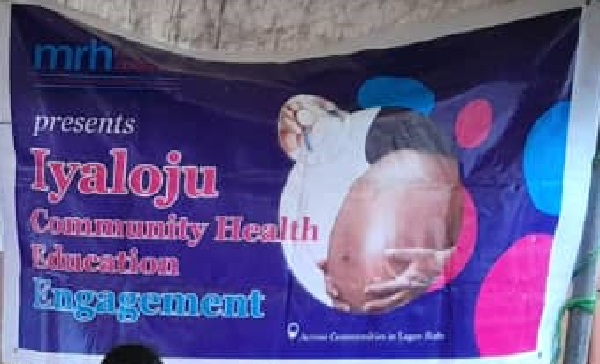By Chinelo Obogo,Rapheal
Copyright thesun

By Chinelo Obogo
A nongovernmental organisation aimed at cutting maternal mortality and improving reproductive health care, Maternal and Reproductive Health (MRH) Collective, has revealed that deliveries taken by the traditional birth attendants have declined.
The organisation made this disclosure at the Iyaloju initiative dissemination meeting in Lagos held to analyse the progress of the Iyaloju project, an initiative aimed at improving the use of primary health care for maternal services in Nigeria, where pregnant women lack access to skilled care.
During the meeting, the MRHC discussed its research findings from when it began the Iyaloju Project, comparing baseline and end-line data of facility and community evaluation. According to the organisation, a cross-sectional study was carried out among women between 15 and 49 years of age in 10 local government areas in Lagos, based on the population size and low incomes.
From its findings, there was an increase in the perception of respondents in seeking formal maternal care at health centres, with deliveries from traditional birth attendants declining from 30.1 percent in 2023 to 24.6 percent in 2025, while deliveries in public and private hospitals rose from 39.1 percent to 40.7 percent and from 30.8 percent to 34.7 percent, respectively. The organisation cited affordability as the main reason women resort to traditional birth attendants and revealed that some women had no form of health insurance.
Executive Director of MRHC, Dr. Olajumoke Oke, said the forum was held to analyse findings, get feedback and insights from stakeholders of the initiative since it began.
Oke said: “As policy makers, leaders and community influencers, your feedback is invaluable. So, we are not just here to share our data, we are also here for your feedback and insights, so that together, we can create a lasting impact on the state.”
MRHC stated that changing health worker’s behaviour and community norms was a long term initiative, adding that there was need to sustain social behavioural interventions, in order to enable the norms to get integrated into the community and be institutionalised.
“It’s very key for development, to invest in community engagement and health worker mentoring to ensure women feel comfortable with the formal health care system.
“Then there’s an urgent need to increase awareness around health insurance, especially for pregnant women and women in the communities generally.”
Giving an overview of the project, Chief Operating Officer of MRHC, Mrs. Funmi Owosho said the organisation aims to create opportunities for every African woman and girl to access information, resources and quality health care that she needs to live a healthy and prosperous life.
Owosho said: “Our work at MRHC is anchored on three strategic pillars. We have the research arm, the programmes and advocacy arm. For research, we conduct rigorous studies to uncover the root causes of maternal mortality in Nigeria and across Africa.”
Advocacy and Stakeholder Engagement Manager of the MRHC, Dr Chiamaka Uwalaka, reiterated that the policy stakeholders’ meeting would “share insights from our intervention activities and research activities to policy makers, so that with the information we give to them, can be used to also influence decision making.”
Special Adviser to the Lagos State Governor on Health, Dr. Oluwakemi Ogunyemi, noted that the organisation had achieved a lot through the Iyaloju initiative.
She stated that no individual organisation could achieve milestones alone, hence the need for stakeholders, community leaders and civil society members to always work together.
Ogunyemi also emphasised the commitment of her office in promoting policies that prioritise the wellbeing of women and children in the community.



